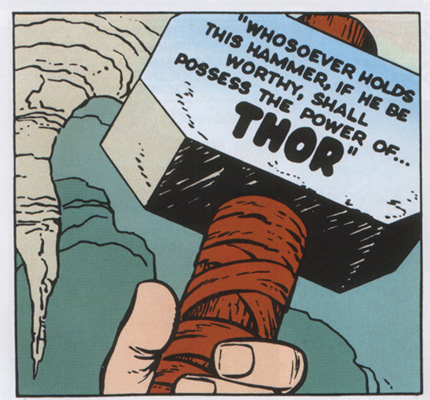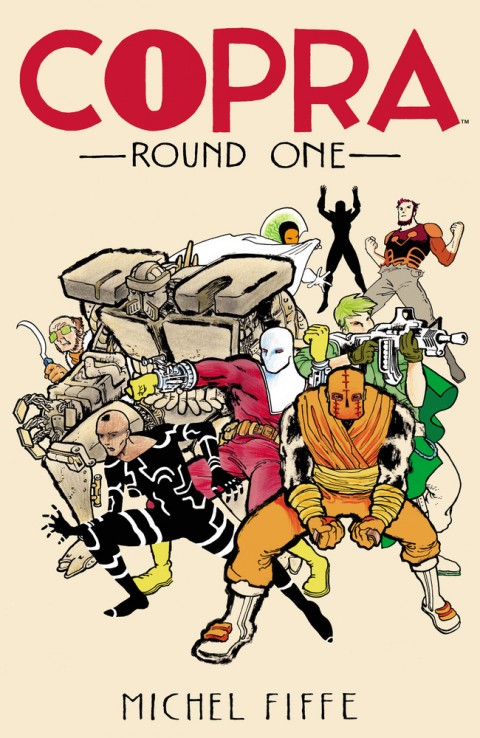Comic book reviews are one of the often-discussed topics here at Comic Book Daily. Or more specifically, should we be reviewing the good stuff we like (to promote it) or the stuff we didn’t like (to warn customers). Should we be building up the industry? Or should we be calling it out when it makes garbage? There is only a limited amount of time and energy that we can put towards reviews so which path should we choice?
A little while back Rick Remember had mentioned talking about the positive on his twitter feed. That got me thinking about an earlier comment that Declan Shalvey had made about comic book reviews and how they rarely discuss the art and storytelling, but rather are summaries of the comic itself.
Comic books are a visual art form, so it stands to reason that they could be discussed in the same way that movies are discussed. Film criticism is firmly grounded in film theory, and there is a specific language used to dissect films and critique what worked or didn’t work about a movie. Sure, not every movie review is great, but mostly they are able to talk the acting, the special effects, the costumes, the lighting, the cinematography, or many of the other aspects of film. Most movie reviews are not summaries of the movie, but rather a discussion of pre-established paradigms.
I’ve been reading a lot of comic book reviews while prepping this article and while I won’t provide any links (I’m not trying to call out specific writers here), I will say that the majority of them are mostly story summaries with brief discussion on the art. If the review is positive there will be some sort of acknowledgement of the artist’s skill, but if the review is negative the art will be briefly dismissed with an amusing quip. At times an artist will receive a negative comment on the neutrality of their work; it is functional, satisfactory, or pedestrian.
Funny quips and short recaps might generate hits but they do little to really discuss a comic book and present the reader with a logical, cogent argument on the comic book as a work of art or why they should or should not spend their money. Now, full confession here: I don’t think that my reviews are particularly great either. I’ve written longer style discussions but they come off as too academic and wordy and so were not accepted for publication. So I get that it is a very delicate balance to be able to touch upon a work in 500-1000 words and actually say enough that the review has merit. I’m trying to improve on that regularly.
The writers whose reviews I enjoy tend to find this balance. They offer a good discussion of the interplay of words and pictures, they can quickly dissect a particular aspect of a book, and when they are required to recap an issue they are able to present the recap in such a way that it doesn’t sound like the Big Golden Book of Superman. While there are lots of great comics writers I would encourage you to check out Tom Spurgeon, Andrew Wheeler, David Brothers, and Chris Sims. I also would recommend checking out the reviews on Heidi McDonald’s The Comics Beat.
I’m reminded of an interview that Roget Ebert once gave on reviewing different types of genres:
“When you ask a friend if Hellboy is any good, you’re not asking if it’s any good compared to Mystic River, you’re asking if it’s any good compared to The Punisher. And my answer would be, on a scale of one to four, if Superman is four, then Hellboy is three and The Punisher is two. In the same way, if American Beauty gets four stars, then The United States of Leland clocks in at about two.”
So while conceptually we can compare Maus and Youngblood, really we need to review books within a genre or story type. Yes, there will be similar discussions on composition, lighting, character, mood, etc., but with a review we are trying to give the reader as much information about the work itself so they can make informed decisions. And some of that information should be about how the work fits into pre-established principles of its genre.
This approach would force some reviewers to think differently. I’ve had more than a few conversations with people who say that they don’t like superhero books, or science fiction, or horror, but if you are coming at a review already hating a genre how non-biased can you really be?
I also think that reviewing comics in this way will allow for a greater meaningful discussion and take any negative reviews out of the realm of personal attacks. If you are sitting around talking with your buddies you get to say that so-and-so writer sucks but once you put pen to paper your arguments need to be a bit more professional. On the flip side this should also help eliminate reviews that are too gushingly positive. When I want to tell the world that I read something awesomely awesome on account of its awesomeness I generally just tweet such sentiments.
Finally, if you are doing a recap of a comic book just call it a recap and avoid all critical analysis. At least you are being honest about what you are writing.
Comic books are a young medium, and the industry grows exponentially each year. With this growth comes a responsibility on all of us to up our game when it comes to the critical discussion of the genre.





Bro, whatever happened to your mission to trade up to a Hulk #181? Have you given up?
I had a Hulk 181. My mission was to trade up to an AF 15, and yes, sadly I have needed to give up. The price of an AF 15 has jumped so exponentially that it just wasn’t feasible. I might have been able to do it years ago but not today. I also think that if I had all of Walt’s knowledge I might be able to do it but my strengths lie in other areas.
Okay, I’ll walk in… what do you feel your strengths are?
Discussing the art at length sounds good, but it seems better to showcase the art in the review and let the reader decide.
I think though that showing the art isn’t really enough. There are lots of great artists that can’t tell a story. Really we are discussing the interplay between words and pictures.
I’m a good dancer, a snappy dresser, and have an inoffensive odour.
Exactly, but doesn’t that fall under discussing the story and characters.
Yes, but it also could fall under discussing many more aspects.
Way to stand back and think about what is really going on in comic reviews, Anthony. I agree with you that they have to be more than a précis. Any review has to be a translation and interpretation of what the original has offered up to its audience and a placing of that offering within the legacy of the medium and the context of existing culture. It should call out the tropes, allusions, and ironies buried in the piece and notice and perhaps respond to any challenges thrown down by the creator. Criticism also demands that you convey an appreciation for the beauty and human resonance of a piece beyond its technical competence. But we’re used to settling for a summary spotted with a few positive or negative adjectives so that we can decide whether or not we want to buy the book. Maybe it’s enough, but it could be more and we need more people doing it more of the time. Comics, as you say, may be a relatively young medium, but the Yellow Kid is just about as old as the cinema and the comic book us just about as old as public television broadcasts, so there’s enough tradition and history to develop classics and worthwhile criticism just as those other media genuinely have… but will fans want to read it…? I don’t know… (BTW, to “rub it in ;-)” have had a copy of AF 15 for fifty years—almost had two but had to sell one five years ago to offset divorce legal fees).
I give this article a 4 out of 5.
I think that fans will want to read it. You and I are fans we would find worthwhile criticism interesting to read. And the more I talk to fans at conventions the more I know we aren’t alone.
And you aren’t rubbing it in ;), I always tip my hat to those who have a sweet sweet copy of AF 15.